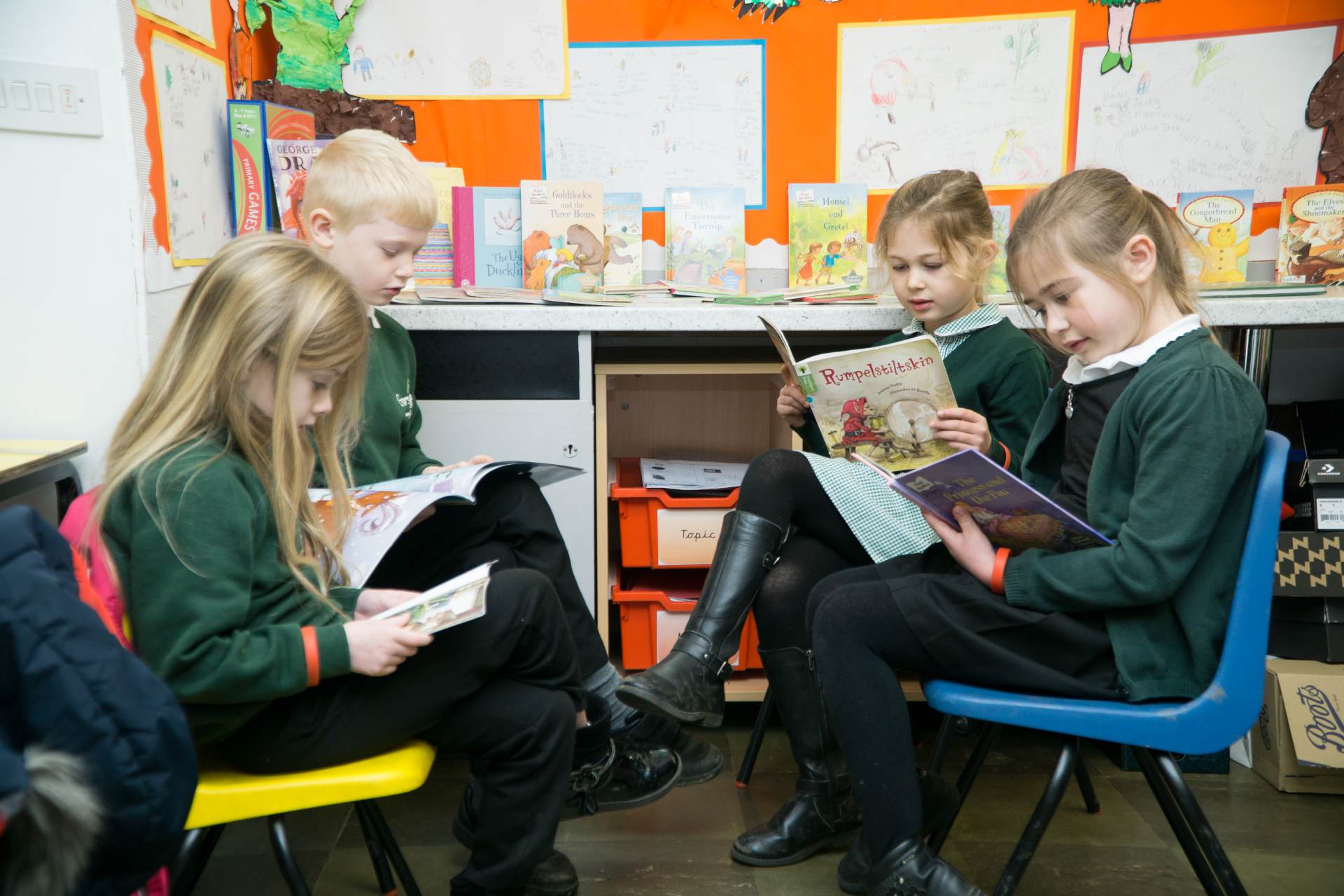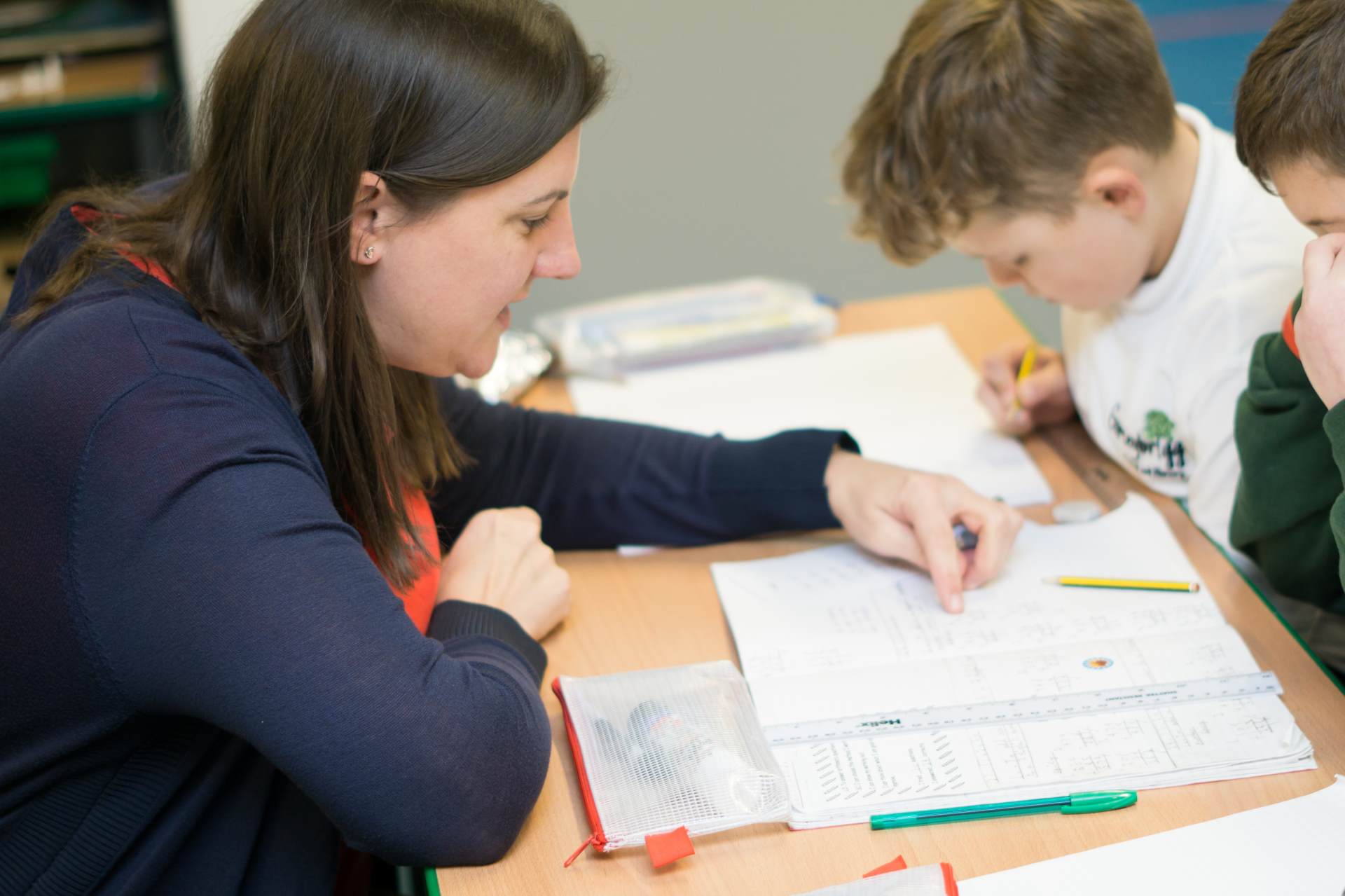English
At Gorseybrigg Primary and Nursery School English is at the heart of all of our teaching.
The study of English and the acquisition of language are vital for all of our children to be able to communicate throughout their education and beyond.
We intend that all children will leave our school having a rich and varied vocabulary as well as a love of literature.
Gorseybrigg Primary School and Nursery is committed to ensuring that children are the ‘best they can be’ in English. To engage and inspire children’s learning, the English curriculum is taught through topics. Exciting topics enable staff to promote children’s love of reading, to write confidently and acquire an ability to organise their ideas orally.
Reading
At Gorseybrigg Primary School reading for pleasure is a priority across the whole school and we aim to instil a life-long love of books within all our children.
Children enjoy a large range of books, cosy reading corners and daily story sessions.
We celebrate events such as World Book Day, National Story Telling Week, hold themed book days and invite story tellers.
Children are encouraged and rewarded for their reading through our Rocket Readers scheme in EYFS and KS1 and Read Around the World in KS2.
EYFS
In EYFS, from the very beginning we try to inspire and excite the children in the world of books, Very quickly, the children develop a positive attitude towards books and understand the importance of learning to read. We teach reading through a systematic synthetic phonics approach, using Little Wandle Letters and Sounds Revised.
Books and other texts are promoted in all areas of learning across a wide range of activities including storytelling, drama and role play, story tents and stories to stimulate dance.
In EYFS, the teaching and practice of reading is teacher-led, through whole class sessions, individual and guided reading. All children take place in daily phonics sessions. Children are encouraged to take books home to share and enjoy.
Key Stage One
In Key Stage One, we continue to teach reading through a systematic synthetic phonics approach, using Little Wandle Letters and Sounds Revised.
Reading books are graded according to Book Bands; our main reading schemes Oxford Reading Tree, Songbirds Phonics, Collins Big Cat and Project X. Each band of books includes a range of fiction, nonfiction, plays and poetry. Children are regularly encouraged to select a book of their choice to take home and share.
On a weekly basis, children participate in three practice reading sessions in which they learn decoding, prosody and comprehension skills. They explore a range of texts, taking note of the author’s style of writing, use of punctuation and look at the similarities and differences between different text types. Stories are regularly shared in class, encouraging a love of reading and stimulating children’s own imagination.
Children take part in daily phonics sessions alongside extra keep-up sessions where needed.
Key Stage Two
In Key Stage 2, children have a wide selection of books to choose for independent reading, banded appropriately until they are confident independent readers.
The development of mature reading skills is supported through guided class reading, text analysis sessions, group guided reading sessions and supervised independent reading time. All classes listen to inspiring and challenging novels read aloud throughout their time at school. We want every child to leave our school as a confident, enthusiastic and discerning reader.
Phonics sessions are available to those in KS2 who still require a more targeted approach to this.
Writing
Writing Workshop Presentation - Wednesday 9th October
At Gorseybrigg Primary School and Nursery we embrace creativity and have developed our own bespoke, text based, thematic curriculum, which we believe inspires our children to become magical writers.
Across the school, teachers strive to promote an engaging and creative writing environment. We firmly believes that great readers become great writers and so teachers choose extremely high quality and stimulating texts linked to the class topic as a basis for writing. Pupils become familiar with a range of text types and their features so that they can begin the exploration of language and structure. Once fully immersed in the text, it becomes a tool to explore ideas about language and structure. Class discussions give a context to grammar and syntax, which subsequently helps to develop and enrich pupils’ own writing skills. By exposing our children to a wide bank of texts, we inspire them.
EYFS
In EYFS, we provide child and adult initiated activities linked to exciting topics.
Children get many opportunities to mark make or write, for example; in the writing shed; as part of sand and water play and exploration; role-play; shopping lists; painting and many more. More than anything, the children are inspired to write through the use of ‘writing hooks’ that engage and fuel their imaginations. For example, a dragon was recently seen flying through the playground and The Gruffalo came to visit our school.
Key Stage 1
In Key Stage One, we continue to provide many exciting opportunities to write and master the skills in the National Curriculum.
Children read books, learn stories and have real experiences, which relate to our topic. In Year One, they go on an Arctic Adventure and write about their exploration, make magic potions and write recipes and enjoy writing in their role play area. In Year Two, Mr Twit sent a parcel of creepy crawlies and the children wrote a trick he could play on Mrs Twit and Florence Nightingale came to visit and helped the children write about her life.
Key Stage 2
In Key Stage Two, quality texts underpin all our teaching and learning.
Our creative curriculum allows children to explore writing in role and for real purposes: letters from Treasure Island, the diaries of Victorian working children, Viking raid newspaper reports, instructions for mummification, stories in the rainforest… Alongside these creative opportunities, children are supported to master the technical elements of writing such as grammar, spelling and handwriting. Our aim is that every child will leave Year Six a confident, accurate and creative writer.
Spoken Language and Drama
Gorseybrigg Primary School and Nursery firmly believes that meaningful talk helps children make fantastic progress in all areas of the curriculum.
Speaking and listening is essential in supporting children to develop and organise their ideas. We also value drama, providing children with opportunities to grow in confidence and independence. The children take part in theatre productions, poetry showcases and drama workshops.
Children are given opportunities to:
- Listen and respond to stories, poems and rhymes.
- Perform poetry.
- Take part in theatre productions.
- Retell stories and poems which are known by heart.
- Participate in discussions and debates.
- Discuss and evaluate their own work with peers and adults.
- Ask and answer questions.
- Justify actions and opinions.
- Participate in planned drama sessions across the curriculum.
- Orally compose before they write.
- Experience visiting theatre groups/storytellers performing at school.
Phonics, Spelling and Grammar
EYFS
In EYFS, daily phonics is timetabled into our curriculum.
We follow the Little Wandle Letters and Sounds Revised programme and adapt it to match the needs of the group.
The phonics approach teaches children to decode words by sounds, rather than recognising whole words. The emphasis in early years teaching is on synthetic phonics, in which words are broken up into the smallest units of sound (phonemes).
Key Stage 1
In Key Stage One, children access an hour a day of phonics. This is comprised of a formal phonics lesson, reading sessions and phonics within continuous provision and English lessons.
We use the Little Wandle Letters and Sounds Revised programme to drive teaching and learning and to ensure coverage. In year one, spelling is embedded with the phonics that the children are taught. In year two, children who are not secure in their phonics learning will continue and are then taught using the No Nonsense Spelling scheme. Grammar is taught through in real texts and in discreet lessons.
Key Stage 2
In Key Stage Two, an in depth programme of study is followed, using No Nonsense Spelling and for those children who require additional support, Letters and Sounds.
Grammar continues to be taught through real texts and in discrete lessons.

